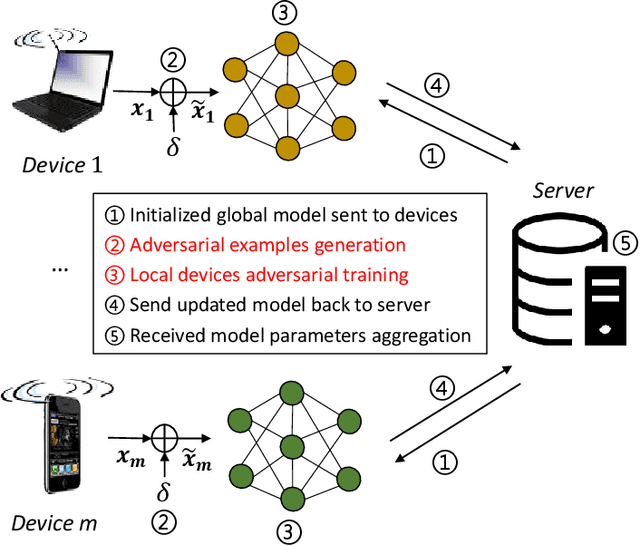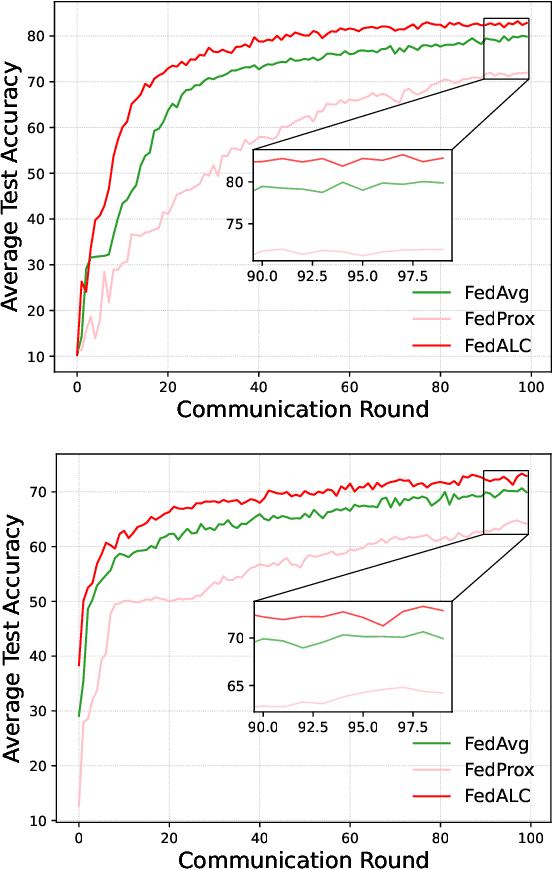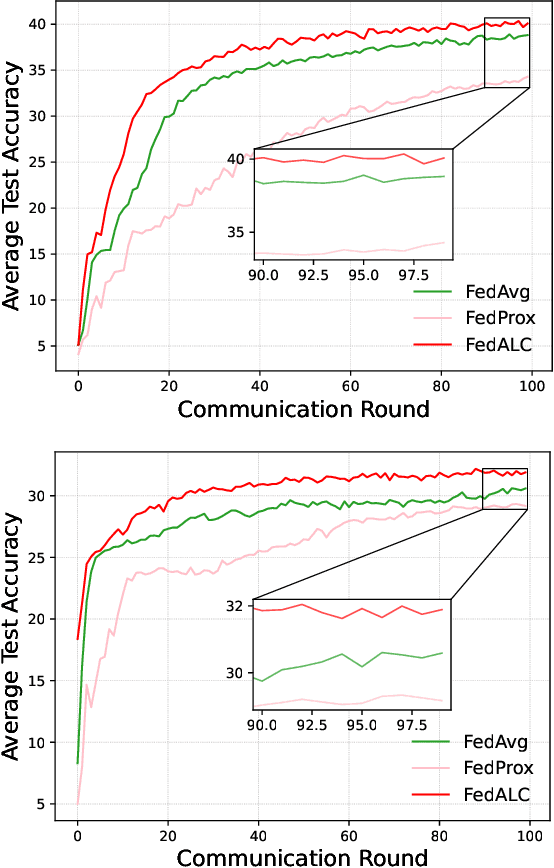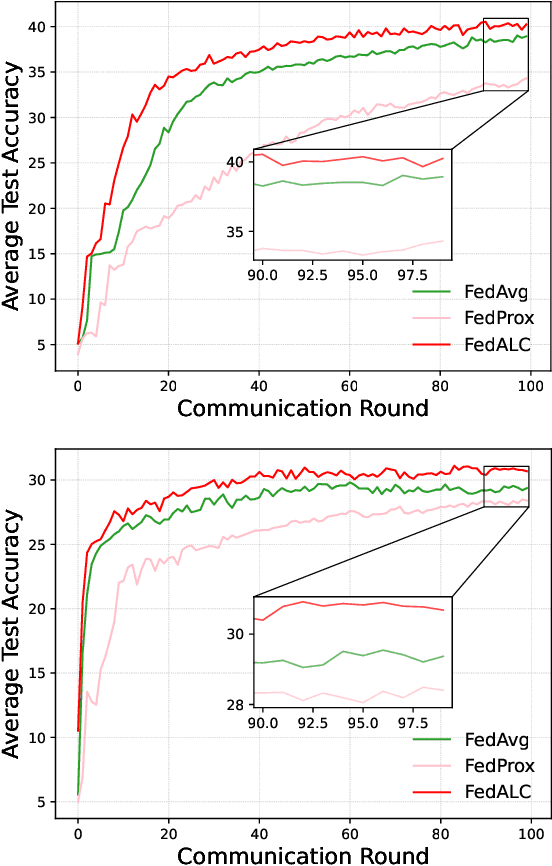Towards Robust Federated Learning via Logits Calibration on Non-IID Data
Paper and Code
Mar 05, 2024



Federated learning (FL) is a privacy-preserving distributed management framework based on collaborative model training of distributed devices in edge networks. However, recent studies have shown that FL is vulnerable to adversarial examples (AEs), leading to a significant drop in its performance. Meanwhile, the non-independent and identically distributed (non-IID) challenge of data distribution between edge devices can further degrade the performance of models. Consequently, both AEs and non-IID pose challenges to deploying robust learning models at the edge. In this work, we adopt the adversarial training (AT) framework to improve the robustness of FL models against adversarial example (AE) attacks, which can be termed as federated adversarial training (FAT). Moreover, we address the non-IID challenge by implementing a simple yet effective logits calibration strategy under the FAT framework, which can enhance the robustness of models when subjected to adversarial attacks. Specifically, we employ a direct strategy to adjust the logits output by assigning higher weights to classes with small samples during training. This approach effectively tackles the class imbalance in the training data, with the goal of mitigating biases between local and global models. Experimental results on three dataset benchmarks, MNIST, Fashion-MNIST, and CIFAR-10 show that our strategy achieves competitive results in natural and robust accuracy compared to several baselines.
 Add to Chrome
Add to Chrome Add to Firefox
Add to Firefox Add to Edge
Add to Edge